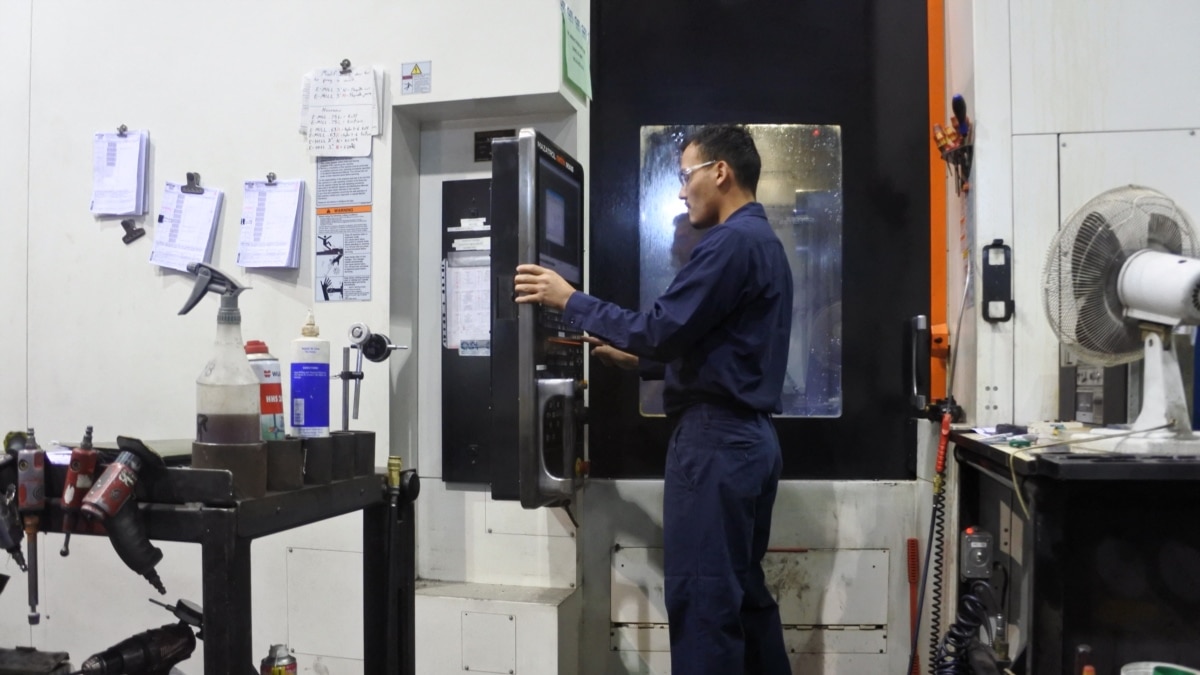At a time when many developed countries are facing a backlash against immigration, Canada is experiencing a broad consensus in favor of opening its doors to more new foreign residents.
With a record number of immigrants admitted to Canada in the past two years, all three major political parties support the policy and, insofar as they disagree, it is to decry bureaucratic hurdles that are slowing down the process. ‘immigration. Likewise, the complaints that appear in mainstream media are not that immigration is too easy, but too difficult.
Immigration Minister Sean Fraser boasted at a press conference last month that Canada “is on track to exceed its immigration target to grant permanent residence to more than 430,000 people in 2022.” This will easily exceed the admission of 401,000 immigrants in 2021, more than in any previous year.
By comparison, the United States — with nine times the population of Canada — admitted only 245,000 immigrants in 2021, compared to 477,000 the previous year. In the years immediately before an immigration-skeptical Trump administration took office, U.S. immigration was about 1 million a year.
Anti-immigrant sentiment elsewhere
In Germany and Britain, which have seen immigration flows more comparable to Canada’s in recent years, the pace of new arrivals in each country has provoked popular backlash, giving rise to anti-immigrant parties increasingly influential in Germany and contributing to the Brexit vote in Britain
But in Canada, opposition to immigration seems to be diminishing even as the rate of immigration increases. According investigationthe percentage of Canadians who think immigration levels are too high has declined since 2018, from 49% to 39%.
All three major political parties strongly support immigration, no doubt aware of the large number of voters who are themselves immigrants. It is estimated that 21.5% of Canada’s 33 million people are first-generation immigrants, while second-generation immigrants make up another 17.4%.
Prime Minister Justin Trudeau’s ruling Liberal Party, with strong support from the social-democratic New Democratic Party, has made immigration a key element of its economic program to address post-pandemic labor shortages.
“Newcomers enrich and improve our communities, and they work every day to create jobs, care for our loved ones and support local businesses,” Fraser said earlier this year. “Without them, Canada would not have been able to meet the challenges in critical industries and sectors of the economy over the past two years.
There is no serious disagreement on this point from the opposition Progressive Conservative Party, which does not hide its contempt for most of Trudeau’s policies.
“The Conservative Party of Canada is a pro-immigration party and Canada benefits from an efficient and effective immigration system,” said Jasraj Singh Hallan, his party’s chief immigration spokesperson in Parliament. . “We must continue to attract and retain qualified newcomers to Canada,” he told VOA.
Hallan took a swipe at Trudeau’s Liberals, saying ‘immigration backlogs and mismanagement of the immigration system have left far too many people hoping to come to Canada stuck in limbo, not knowing when they can come here. and start their life.”
He added that his party’s goal is “to make our country the premier destination for skilled immigrants who can contribute to our economy and our communities.”
A populist party founded in 2018, the People’s Party of Canada, has called for greater restrictions on immigration, but it has no MPs in parliament and is generally seen as a fringe group. He received around 5% of the popular vote in last year’s general election.
Like Hallan, Canada’s major news media mostly direct their complaints about the overburdened immigration system to backlogs that have left 1.3 million applications still pending. The Canadian Broadcasting Corp. recently published an article titled: “Moving to Canada was harder than I thought. I’m not sure I’ll do it again. »
Difficult process
Despite official policies for welcoming newcomers, immigration consultants warn that the process can be long and difficult.
“Know your rights,” said Idil Atak of Metropolitan University of Toronto. “Immigration and citizenship laws are complex and unstable. It is important that immigrants, including refugees, learn about their rights in Canada and use the sources available to them.
“Access to legal aid, an attorney, an interpreter, or just accurate information can make a huge difference in crafting a successful citizenship application,” Atak told VOA. “Legal Aid and Community Organizations and some other nonprofits offer helpful advice and vital support in this process.”
And Nick Noorani, whose book Welcome to Canada is distributed to new immigrants by the Canadian government, noted that problems remain even after the official processes have been completed.
“Canadian employers tend to be risk averse and some studies show that systemic racism plays a role in [newcomers] being overlooked for opportunities and promotions,” Noorani said.
Harald Bauder, an immigration expert at Metropolitan University of Toronto, wants all newcomers to understand that Canada is, in fact, “a colonial country” and that the only Canadians who are not descended from immigrants are members of Indigenous First Nations.
“Canada’s indigenous population suffered from displacement, land grabbing and genocide at the hands of settlers,” Bauder told VOA. “An immigrant also becomes a settler, and with this role also has a responsibility to engage critically with settler colonialism, to learn about Indigenous peoples and their plight, and to engage in the decolonization.

“Coffeeaholic. Lifelong alcohol fanatic. Typical travel expert. Prone to fits of apathy. Internet trailblazer.”
